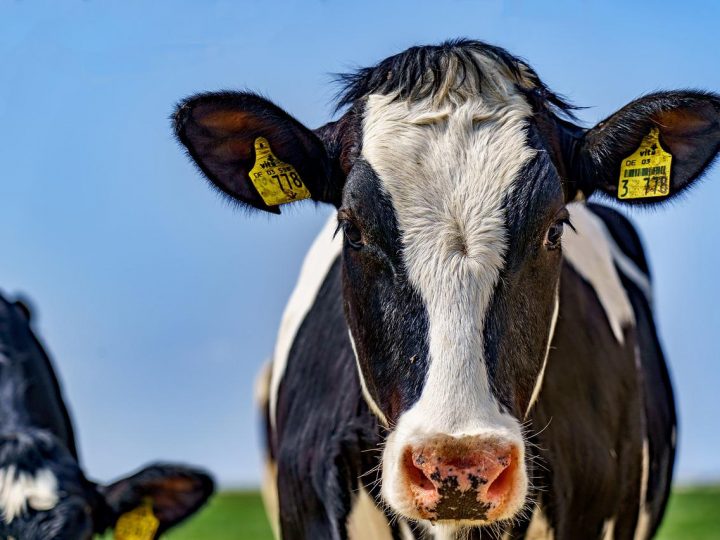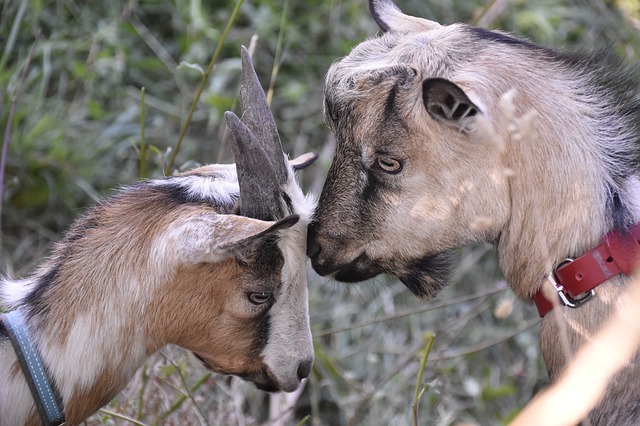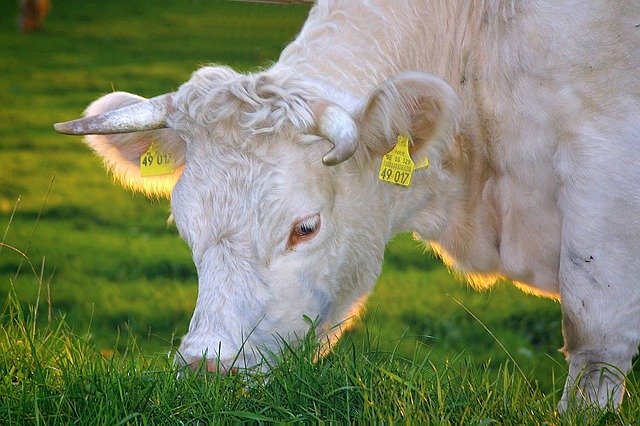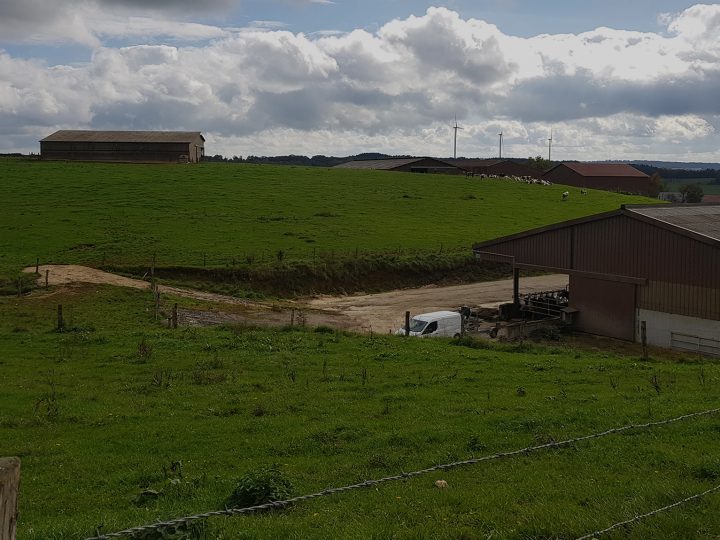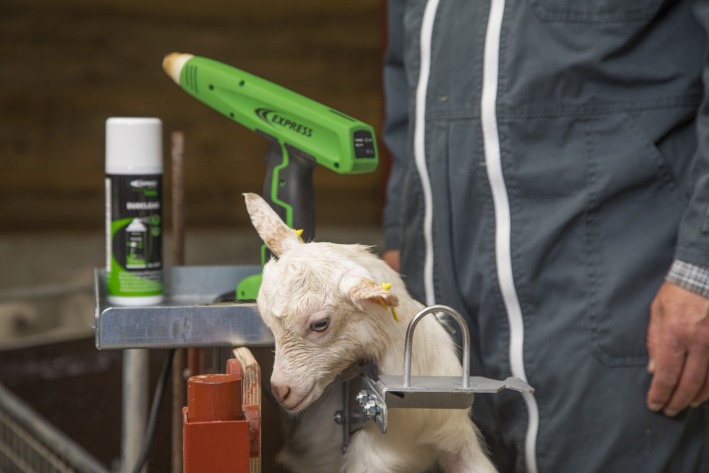
There are several methods for dehorning cattle, including using a pen, an iron, or a wire. The first method is chemical and has many drawbacks. The iron method is thermal, and therefore much better for animal welfare. The last method, using a wire, is reserved for older, even adult animals, and is a heavy and painful operation. It is always recommended to proceed with dehorning as early as possible.
Dehorning with a pen
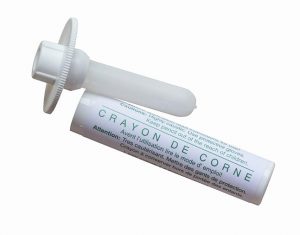
Dehorning with a pen
Dehorning with a pen is a chemical method. The products are very delicate to handle and the burns caused to the calf are painful and continue long after the operation.
This involves using a tool that looks like a pen and spreads a silver sodium nitrate paste over the entire base that surrounds the cornices being developed. In spite of preliminary anaesthesia, this method remains very painful, because the suffering is long-lasting. The administration of non-steroidal anti-inflammatory drugs limits, but does not eliminate, the suffering caused.
The product destroys the skin and the base of the horn in order to eradicate the cells that secrete horny matter. There’s no bleeding. Following treatment, the area dries out and forms an eschar which should fall off after two or three weeks. If the calf is exposed to moisture and the pressure sore remains moist, infectious complications can occur.
In addition to the violence of the intervention, the risk of calves rubbing against other animals can cause burns in the herd. During suckling, the calf may also spread the caustic on its mother and cause her to suffer severe burns. In case of contact with the eyes or mucous membranes in the mouth or nose, the consequences can be serious.
Electric dehorning or gas dehorning
Electric dehorning or gas dehorning uses a soldering iron with a specific tip. The calf must be anaesthetised before the operation and receive anti-inflammatory drugs afterwards, to avoid pain.
Electric dehorning
The electric dehorner is very practical. Your iron quickly rises to a temperature of 700 °C and cools down just as quickly. You have the choice between a battery operated dehorner, recommended if you carry out the procedure directly in the meadow, or a plug-in dehorner, preferable for use in the barn. In this case, the device is lighter, therefore easier to handle and time is not limited when you have several animals to skin.
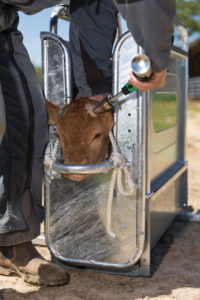
A safe solution, the gas debarker
Gas dehorning
Gas dehorning (butane or propane) uses a stand-alone appliance that can be powered by an individual gas cartridge or connected to a gas cylinder. It produces no flame, but does emit intense heat up to 700°C and is as efficient as the electric debarker.
If you operate in a humid environment, it is often better to choose gas rather than electricity.
Wire dehorning
Wire dehorning is a way of sawing off horns that have already come out, whereas the
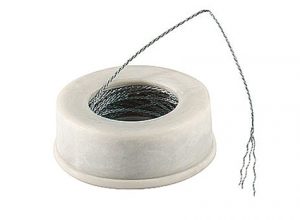
Wire dehorning
two previous methods precede their growth.
A wire saw is used on animals over 24 months of age. The operation requires compulsory anaesthesia in the framework of the Breeder Charter.
It should be avoided at all costs, as it is traumatic and painful for the animal. Sectioning near the base leaves the sinuses open. A bandage should be applied to the cut to facilitate healing.
There is a risk of haemorrhaging or sinusitis in the winter and, in the summer, flies can infiltrate cut horns and nest in the sinuses, with catastrophic consequences for the animal.


